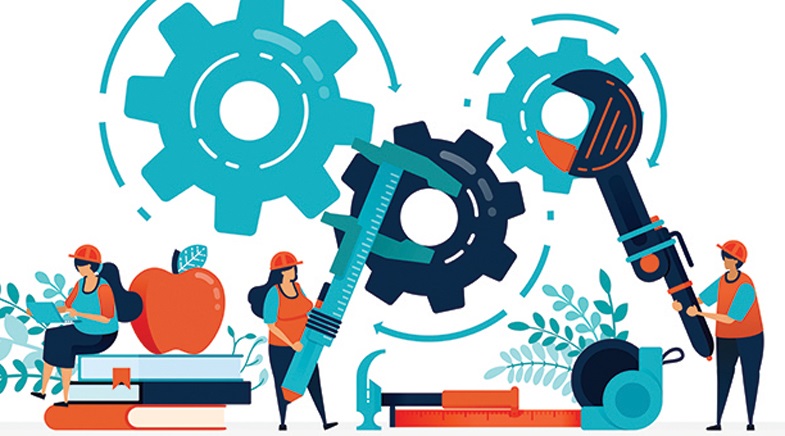New CAR-T promise
-
- from Shaastra :: vol 04 issue 03 :: Apr 2025

New research gives a boost to advanced cancer therapy, making it cheaper, more effective and durable.
Researchers at Jamia Millia Islamia University in New Delhi have developed an advanced version of CAR-T (chimeric antigen receptor T cell) therapy that promises to deliver a more effective cancer treatment.
A better alternative to conventional cancer treatments, CAR-T cell therapy (Closer to a cure) involves extracting a patient’s T cells (a class of white blood cells protecting the body from infections and cancers), modifying them to recognise cancer cells and then reinfusing them into the patient for targeting the rogue cells. However, the current generation of CAR-T cell therapy is expensive. Further, almost half the patients who successfully undergo CAR-T cell treatments experience a relapse in less than five years.
Now, researchers led by Tanveer Ahmad, Assistant Professor in the Multidisciplinary Centre for Advanced Research and Studies, at Jamia Millia Islamia, have found a way to improve the persistence of T cells, leading to more sustained anti-tumour activity. In a paper (bit.ly/Areej-CART), the team reported a novel fourth-generation CAR-T cell therapy, which can potentially lower high relapse rates.
CAR-T cell treatments currently being used mostly belong to the second generation of therapy. Many groups, including the Jamia team, have developed third-generation therapies undergoing clinical trials. The generations are named based on the number of costimulatory domains (CSDs) — signalling domains that provide additional signals to the T cells, enhancing their activation, proliferation, and survival. While a second-generation CAR-T cell therapy has one CSD, the third-generation treatment has two or more. The more CSDs, the better the efficacy.
The team reported a novel fourth-generation CAR-T cell therapy, which can potentially lower high relapse rates.
Typically, as CAR-T cells constantly fight tumour cells, they create dysfunctional organelles (damaged mitochondria), which impair clearance mechanisms called autophagy and mitophagy. The Jamia scientists addressed this problem. They screened 27 compounds found to promote autophagy and mitophagy in 3,357 combinations. "...We found that a combination of a peptide called GLP-1 and a drug called Urolithin A increased all the markers that are responsible for good autophagy and mitophagy," says Ahmad’s student Areej Akhtar, who did her doctorate on this work and is the first author of the paper.
Ahmad, who filed a patent for this technique with Akhtar, is confident that cancer patients in India will get better and cheaper treatment as most components used are indigenously developed. Currently, the cost of CAR-T cell therapy runs into crores of rupees.
Sivaprakash K. Ramalingam, Associate Professor specialising in genomics and molecular medicine at the Indian Institute of Technology Kanpur, says the "promising" preclinical studies suggest the approach is effective and more durable. "By overcoming the challenge of a relapse, this advanced therapeutic approach has the potential to significantly improve patient outcomes," says Ramalingam, who is not related to the work.
Have a
story idea?
Tell us.
Do you have a recent research paper or an idea for a science/technology-themed article that you'd like to tell us about?
GET IN TOUCH














